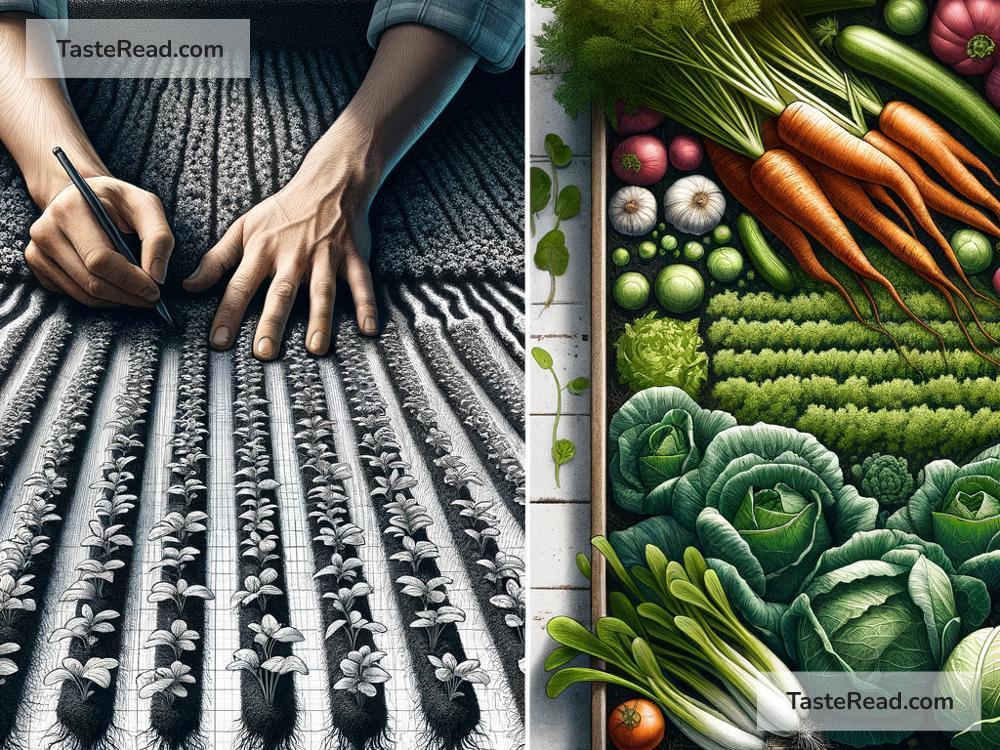How Salinity in Soil Affects Vegetable Taste
Have you ever wondered why vegetables grown in different places taste different? Some carrots might be sweeter, some tomatoes juicier, and some cucumbers may lack flavor. One surprising factor that influences the taste of your vegetables is the salinity of the soil in which they grow. In this blog, we’ll explore what soil salinity is, how it affects plants, and how it impacts the taste of your favorite veggies—all explained in simple terms.
What is Salinity in Soil?
First, let’s understand what “salinity” means. Salinity refers to the amount of salt in the soil. Soil naturally has small amounts of salt, which comes from minerals in rocks and water. However, when too much salt builds up, it can affect how plants grow. This can happen in places where water evaporates quickly (like dry regions) or when farmers irrigate crops with salty water.
Salt in soil includes common types like sodium chloride (table salt), but it can also include other salts such as magnesium sulfate and calcium carbonate. These salts dissolve in water and create a salty environment that can be good or bad depending on the situation—and it can impact the taste of vegetables.
How Does Salty Soil Affect Plants?
Plants need water to grow. When the soil has high salinity, the salt pulls water away from the plants. This is because salt creates a chemical imbalance, which makes it harder for plants to absorb water through their roots. It’s like trying to drink water from a straw when the straw has tiny holes—it’s much more difficult!
Salty soil can cause “stress” to plants, making it harder for them to grow big and healthy. In extreme cases of salinity, plants might stop growing altogether. But in some cases, mild salinity can lead to interesting changes in the vegetable’s taste.
Why Does Salinity Change the Taste of Vegetables?
When soil is only mildly salty, it can make certain vegetables taste better. Here’s why:
1. Salt Stress Improves Sugar Content
When plants experience stress from salty soil, they sometimes produce extra sugars to protect themselves. These sugars act like armor, helping the plants survive. For vegetables like carrots, beets, and tomatoes, these extra sugars can result in sweeter, tastier produce! That’s why tomatoes grown near the salty water of the Mediterranean often have a delightful sweetness that’s hard to beat.
2. Flavor Compounds Change
Salt stress can also change the way plants produce chemicals that affect flavor. For example, vegetables might produce fewer bitter compounds, resulting in a smoother taste. On the flip side, some crops like cucumbers or spinach can develop stronger flavors that some people describe as “earthy” or “unique.” Different levels of salinity create different flavor profiles in vegetables.
3. Water Content Changes
Salt in soil can reduce the amount of water that gets stored inside the vegetable. This can make some vegetables denser and more flavorful because their natural juices become concentrated. For example, mildly salty soil can make fruits like melons taste sweeter and more intense.
When Salty Soil Goes Too Far
While a little bit of soil salinity can enhance flavor, too much salt can ruin crops and their taste. If the soil becomes overly salty, plants stop growing properly. Vegetables can turn tiny or shriveled, and their taste might lack sweetness or richness.
Additionally, excessive salt can make the soil toxic for plants, meaning farmers may struggle to grow anything at all. Farmers often test soil before planting crops to ensure it isn’t too salty.
How Farmers Use Salinity to Improve Taste
Farmers and researchers know that a little bit of salinity can be good for taste, so they sometimes use this knowledge to produce tastier vegetables. Here are a couple of ways they manage salinity:
1. Applying Controlled Irrigation
Farmers in areas with salty water will sometimes dilute the water to a safe level for crops. This allows them to use salt-stressed soil to grow sweeter vegetables without harming the plants.
2. Growing Salt-Tolerant Crops
Certain vegetables, like beets, spinach, and tomatoes, are naturally better at handling salt than others. Farmers often grow these salt-tolerant crops in areas with salty soil to make flavorful produce without problems.
What Can You Do as a Home Gardener?
If you’re growing vegetables in your backyard or garden, you probably won’t have to worry too much about salinity unless you live in a coastal area or use very salty water for irrigation. If you suspect salty soil, you can test your soil with a simple kit from a garden store.
To make your vegetables taste better, focus on providing healthy soil, enough water, and a balanced mix of nutrients. You don’t need to add salt to your garden soil—leave the salinity experiments to the professionals!
Conclusion
Salinity levels in soil play an important role in how vegetables grow and taste. Mildly salty soil can create sweeter, richer vegetables by influencing sugar levels, flavor compounds, and water content. However, too much salt can harm plants and ruin the crop entirely. Farmers and researchers have learned how to manage soil salinity to grow some of the most delicious vegetables, from sugary carrots to juicy tomatoes.
The next time you bite into a sweet beet or a flavorful watermelon, you might just be tasting the effects of soil salinity! Nature has a fascinating way of influencing food, and understanding how it works can make us appreciate the things we eat even more. Happy gardening, and enjoy your veggies!


